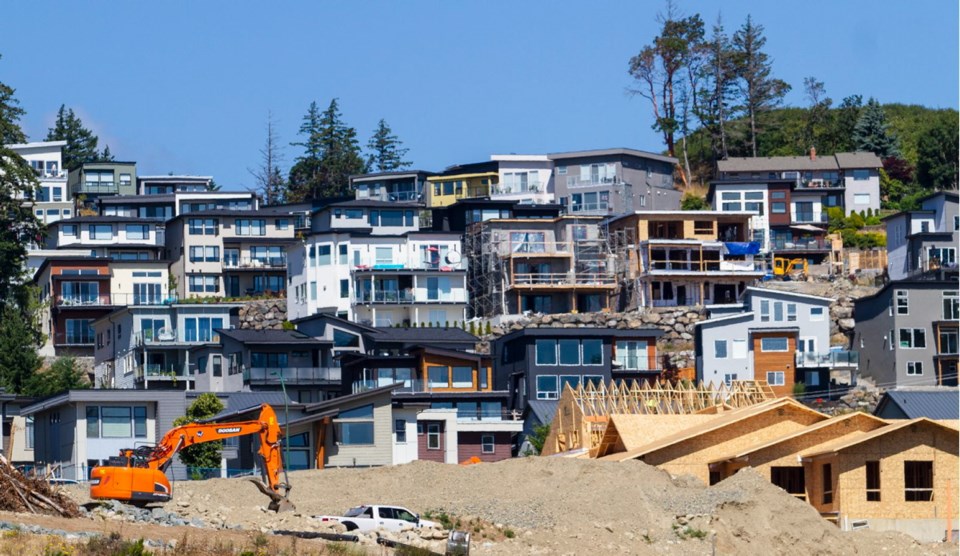The number of new homes started in the capital region is on par with 2019 but it’s the West Shore municipalities where developers are investing their money.
Langford, Colwood, View Royal and Sooke combined were responsible for 1,424 starts of new homes between January and July, dwarfing other areas.
A total of 1,930 starts have been recorded for the capital region for the first seven months, up only slightly from 1,921 Canada Mortgage and Housing Corp. said Tuesday in its monthly report on housing starts.
What’s notable is that these homes are going ahead as Greater Victoria’s housing market remains strong, even as unemployment last month reached 11.1 per cent — the third consecutive monthly increase.
The capital region has seen single-family housing starts increase as developers focus on major projects in the West Shore, such as Latoria North and South on Royal Bay lands in Colwood.
Smaller lots, low interest rates and lower land costs are among factors luring builders to the West Shore.
Year-to-date, single-family house construction rose by 20 per cent, with 420 starts, an increase from 349 for the same months last year.
Last month alone, the number of homes started in Greater Victoria was 363, up from 307 in July 2019. The majority — 321 — were in Langford, Colwood, View Royal and Sooke.
Of the single-family homes that got underway this year, 273 of them have been in Langford, Colwood, View Royal and Sooke, with 51 in July alone.
Across Canada, a total of 245,604 starts were recorded in July, an increase of 16 per cent from 212,095 in June.
“The national trend in housing starts increased for a second month in July,” said Bob Dugan, CMHC’s chief economist.
“Higher multi-family starts in major urban areas, including Toronto, Vancouver and oil-producing centres in the Prairies drove the national increase.
“Following declines in previous months from COVID-19 measures, higher activity in June and July leaves the trend in housing starts in line with the long-run average level of housing starts.”
Dugan predicted that national starts will trend lower in the near term because of the negative impact of COVID-19 the economy.
Omar Abdelrahman, TD Banking economist, said, “Canadian housing data continues to defy expectations.”
The latest numbers “reinforces the resilience of homebuilding activity, and housing market activity more broadly, despite the unprecedented, pandemic-induced hit to the economy.”
Other than a pandemic-related shutdown in Quebec in April,“homebuilding has shown only a muted response to COVID-19, swiftly returning to pre-pandemic levels. This stands in contrast with more severe declines and more drawn-out recoveries seen in other industries,” Abdelrahman said.
Housing demand now and in the near term will be partly fuelled by past population growth, low interest rates, and general demand, he said.
However, he cautions that lower immigration limiting population growth could reduct that activity.



